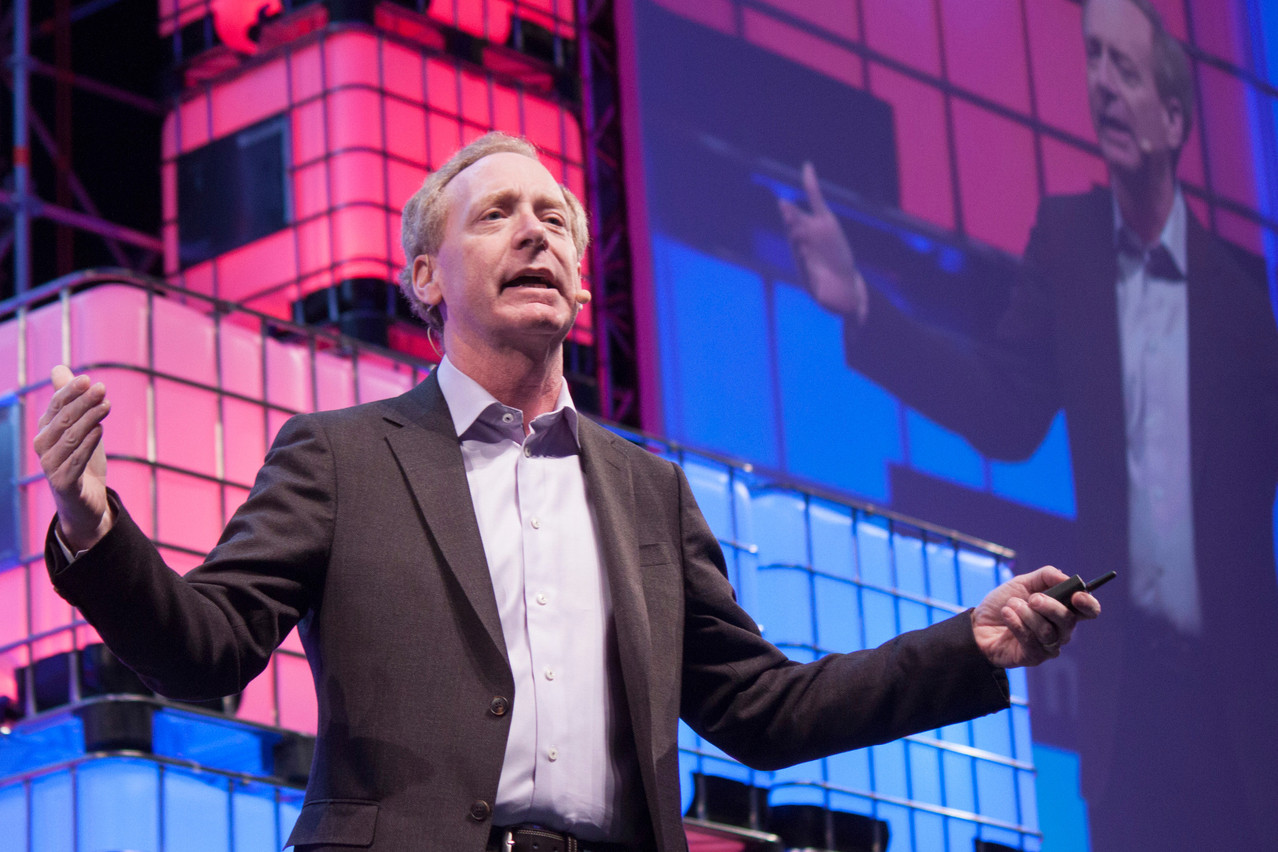What impact will Donald Trump have on the data and operational technology of US giants in Europe? While the question is churning in the minds of political decision-makers and businesses alike, Microsoft vice president Brad Smith has taken a louder approach: he has made a strong public commitment.
“Forty-two years ago, Microsoft released the very first version of Microsoft Word,” said Smith this morning in Brussels, speaking at the European office of American think-tank the Atlantic Council. “It was a major milestone in the company’s journey to enhance people’s productivity through innovation. It also marked the young and growing company’s first big step in Europe with the first Microsoft product localised in multiple European languages, starting with German and French.”
“Since then,” he continued, “our economic reliance on Europe has always run deep. We recognise that our business is critically dependent on sustaining the trust of customers, countries and governments across Europe.”
While Smith did not put a figure on these commitments, he did comment: “Microsoft is investing tens of billions of dollars annually in expanding its data centres across Europe. These investments aren’t on wheels. They are permanent structures and subject to local laws, regulations and governments. Like every citizen and company, we don’t always agree with every policy of every government. But even when we’ve lost cases in European courts, Microsoft has long respected and complied with European laws.”
The commitments he presented are the European component of the company’s commitments in the United States. As part of the Biden administration’s “Investing in America” plan, in May 2024 Smith announced a $3.3bn investment to build a data centre dedicated to artificial intelligence in Mount Pleasant, Wisconsin. The project aims to create 2,300 construction jobs and 2,000 permanent positions, while establishing an AI innovation lab at the University of Wisconsin-Milwaukee and a Data Center Academy in partnership with Gateway Technical College to train more than 1,000 people by 2030.
This investment is part of a broader strategy by Microsoft, which plans to spend approximately $80bn in the 2025 fiscal year to develop AI-enabled data centres, more than half of which will be in the US. In addition, Microsoft and OpenAI are considering an ambitious project called Stargate, which would see the construction of a supercomputer in the United States with a potential investment of $100bn and planned for 2028 .
The five commitments
We will help build a broad AI and cloud ecosystem across Europe. This includes increasing European data centre capacity, promoting public and sovereign cloud data centres, supporting European cloud providers and ensuring compliance with European laws. Data centre operations will be extended to 16 member states through 200 data centres, with a 40% increase in capacity over the next two years. This commitment supports public (such as Microsoft Cloud for Sovereignty) and sovereign (such as Bleu in France and Delos in Germany) cloud data centres, as well as European cloud providers.
We will uphold Europe’s digital resilience even when there is geopolitical volatility. Microsoft is committed to legally challenging orders to suspend cloud operations in Europe, making this commitment legally binding in contracts with European governments and the European Commission, and establishing business continuity partnerships with European partners.
We will continue to protect the privacy of European data. Microsoft highlights the implementation of the EU Data Boundary project, allowing European business and public sector customers to store and process their data and personal identifiers for core cloud services within the EU and EFTA regions from January 2024. The company offers additional security and encryption options, such as Confidential Compute, lockbox capability for data access and customer-controlled encryption keys (Azure Key Vault, Microsoft Purview Customer Key) and has a history of fighting legal battles to protect European customer data.
We will always help protect and defend Europe’s cybersecurity. Microsoft has helped Ukraine move its data and defend against cyber attacks. The company is appointing a new Deputy CISO for Europe. This senior executive will be responsible for compliance with current and emerging European cybersecurity regulations, including the Digital Operational Resilience Act (DORA), the NIS 2 Directive and the Cyber Resilience Act (CRA). Microsoft is committed to complying with the CRA and to using an independent auditor to verify and validate its commitments in Europe.
We will help strengthen Europe’s economic competitiveness, including for open source. Its Azure AI platform hosts more than 1,800 AI models, most of which are open source23 . The company has eliminated data transfer fees for customers who choose to switch cloud providers, making data portability easier23. Microsoft has supported European startups and companies in using these tools for innovation.
This article in French.
